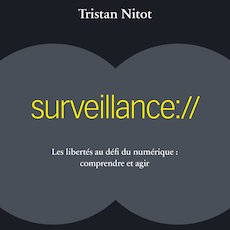Excerpt from his book, The Assault on Reason, thanks to Time Magazine[1]:
(...) the Internet has the potential to revitalize the role played by the people in our constitutional framework. It has extremely low entry barriers for individuals. It is the most interactive medium in history and the one with the greatest potential for connecting individuals to one another and to a universe of knowledge. It's a platform for pursuing the truth, and the decentralized creation and distribution of ideas, in the same way that markets are a decentralized mechanism for the creation and distribution of goods and services. It's a platform, in other words, for reason. But the Internet must be developed and protected, in the same way we develop and protect markets—through the establishment of fair rules of engagement and the exercise of the rule of law. The same ferocity that our Founders devoted to protect the freedom and independence of the press is now appropriate for our defense of the freedom of the Internet. The stakes are the same: the survival of our Republic. We must ensure that the Internet remains open and accessible to all citizens without any limitation on the ability of individuals to choose the content they wish regardless of the Internet service provider they use to connect to the Web. We cannot take this future for granted. We must be prepared to fight for it, because of the threat of corporate consolidation and control over the Internet marketplace of ideas.
These words come on the heels of the announcements of Silverlight and Apollo, which goal is to replace the Open Web with proprietary platforms. Someone's got to fight for the Open Web, and I think that Mozilla is able to do it, with the help of other organisations, Open-Source or not (I'm looking at you, Opera and Apple!), ranging from browser vendors to every Open Web stakeholders (which actually means all of us, users, Web developers, Website owners, etc.).
Notes
[1] Hat tip to Paul for the link.






4 réactions
1 De Julien - 31/05/2007, 19:43
Tristan,
Sans vouloir casser l'ambiance, je crois qu'il parle de Google là..
J.
2 De Julien (un autre) - 01/06/2007, 01:40
Et Apollo a tout de même de bonnes chances d'être libéré un jour, après Flex 3 à la fin de l'année.
3 De Paul Kim - 01/06/2007, 03:56
Glad you found the article blog-worthy Tristan. Here's another, related en: http://www.designobserver.com/archi...
4 De Benoit - 01/06/2007, 08:35
Car bien sûr Google est un des plus farouches opposants à la Net neutrality. Ah non, on me dit que c'est le contraire...
Joli écran de fumée, sinon.